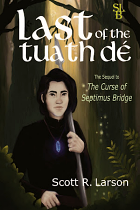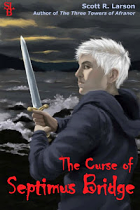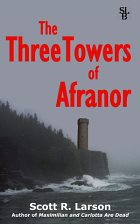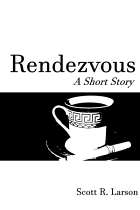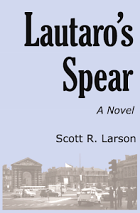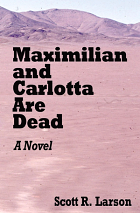Col. Potter (1915-2011)
When someone has appeared in movies and on TV as long as Harry Morgan did, it is a sure bet that most of us will associate him mainly with one particular character. And, as usually happens, which character you will associate him with will depend largely on your age. But given that Morgan lived to the age of 96 and his working career spanned from 1942 to 1999, the age groups that remember him really well will break down something like this: middle-age, old and really old.
My earliest memory of him was as the neighbor Pete Porter on the 1950s sitcom December Bride. The taciturn Pete was always making somewhat disparaging wisecracks about his wife Gladys, whom we never saw. In that way, he was a forerunner of George Wendt’s Norm on Cheers three decades later and David Hyde Pierce’s Niles on Frasier a decade after that. But we did end up finally meeting Gladys when Pete was spun off into his own sitcom Pete and Gladys and Cara Williams was cast as a much more attractive spouse than we had been led to expect. CBS got a lot of mileage the summer before teasing viewers about the fact that they would finally get a chance to see the mysterious Gladys.
Morgan, of course, was a regular on several other memorable TV series over the years. We may have forgotten his role as Seldom Jackson on the 1960s series Kentucky Jones, starring Dennis Weaver as a veterinarian, but no one who is old enough has forgotten that he was Sgt. Joe Friday’s sidekick, Bill Gannon, on the 1960s incarnation of the police procedural Dragnet. This was a revival of the original 1950s Jack Webb series, in which Friday’s partner was played by Ben Alexander. Morgan would later reprise the role in Tom Mankiewicz’s 1987 Dragnet movie spoof, starring Dan Aykroyd and Tom Hanks. (He also voiced the character on a 1995 episode of The Simpsons.) In the 1970s Morgan was Doc Amos B. Coogan on Hec Ramsey, starring Richard Boone as a deputy sheriff.
The role that Morgan will mainly be remembered for is that of Col. Sherman T. Potter on M*A*S*H. The character did not appear in the 1970 Robert Altman film, on which the series was based, or in the first three seasons of the series. In a 1974 episode, he appeared as batty Major General Bartford and then, a year later, was brought back as Col. Potter, the new commander of the 4077th Mobile Army Surgical Hospital. He replaced McLean Stevenson, who had quit the series and whose character, Lt. Col. Henry Blake, had been killed off. Morgan played Col. Potter for eight years and then played him some more on the follow-up series After MASH. And once again viewers got a chance to see a previously unseen TV wife of Morgan’s, as Barbara Townsend was cast as Mildred Potter.
Harry Morgan was such a prominent fixture on our small screens that it is easy to forget his extensive career as a character actor in feature films. His deadpan mug was perfect for playing the foil to other characters, and he was often cast in war movies or westerns. The characters he played tended to have names like Mouthy, Brownie, Smoke, Cottonwood, Shorty and Henchman Nat. I remember seeing him in the 1943 film The Ox-Bow Incident when it was shown in a classroom as part of a civics lesson. In that movie, Morgan rides with Henry Fonda into a town that is dealing with the aftermath of a cattle rustling incident that will lead to tragic consequences. In those days, the actor was billed as Henry Morgan. By the time he did December Bride, he had altered his professional name to include his given name Harry (he was born Harry Bratsberg) to avoid confusion with a grumpy humorist who was also called Henry Morgan (born Henry Lerner Van Ost Jr.), who spent more than a decade as a panelist on the TV game show I’ve Got a Secret.
Even devoted film buffs may be surprised upon being reminded of all of the movies Morgan appeared in. He was an ensign in Wing and a Prayer (with Don Ameche), a captain in A Bell for Adano, a carnival barker in the musical State Fair, Frank Lubey in the 1948 adaptation of All My Sons (with Edward G. Robinson and Burt Lancaster), a bad guy in the film noir The Big Clock (with Ray Milland), an outlaw in Yellow Sky (with Gregory Peck), the unfortunate clubfooted Hippolyte in Vincente Minnelli’s Madame Bovary (with Jennifer Jones), a soldier in Dark City (with Charlton Heston), Gary Cooper’s friend and neighbor Sam in Stanley Kramer’s High Noon, a director in Torch Song (with Joan Crawford), Jimmy Stewart’s pianist in The Glenn Miller Story, a cattle driver in The Far Country (again with Stewart), a flight engineer in Strategic Air Command (with Stewart again), a sergeant in The Teahouse of the August Moon (with Marlon Brando), the judge presiding over the “monkey trial” in Kramer’s Inherit the Wind, a printer in Cimarron (with Glenn Ford), Gen. Ulysses S. Grant in How the West Was Won, the Secretary of State in John Goldfarb, Please Come Home! (with Shirley MacLaine), Elvis Presley’s sidekick in Frankie and Johnny, a major in Blake Edwards’s What Did You Do in the War, Daddy? and a sheriff in Irvin Kershner’s The Flim-Flam Man (with George C. Scott). And that’s only a fraction of his movie work.
He was in both Support Your Local Sheriff! and Support Your Local Gunfighter (both with James Garner). He was a police chief in Viva Max (with Peter Ustinov). During the 1970s, he appeared in a string of Disney movies: as a company president in The Barefoot Executive (with a very young Kurt Russell), as an angel in Charley and the Angel (with a rather long-in-the-tooth Fred MacMurray), as a sheriff cum judge in The Apple Dumpling Gang and as a general in The Cat from Outer Space.
Morgan’s feature film career continued up until 1997 when he played the late holiday camp operator in the comedy Family Plan, starring Leslie Nielsen, Judge Reinhold and a bunch of kids. But perhaps the best swan song for his cinema career (as distinct from his considerable television work) would be the same as John Wayne’s. In Don Siegel’s 1976 western The Shootist, Wayne played dying gunfighter John Bernard Brooks. Once more in a western and once more playing an authority figure, Morgan had the role of the nervous Marshal Walter Thibido, who had the unenviable task of telling Brooks that he wants him to leave town. Fearing a gunfight with the legend, he is relieved to be told that Brooks is dying. “Don’t take too long to die,” he advises.
That was the Duke’s final film. Harry Morgan’s career would go on another 23 years, and he would live another 35 years. But that is the moment I choose to freeze in time to remember him.
-S.L., 15 December 2011
If you would like to respond to this commentary or to anything else on this web site, please send a message to feedback@scottsmovies.com. Messages sent to this address will be considered for publishing on the Feedback Page without attribution. (That means your name, email address or anything else that might identify you won’t be included.) Messages published will be at my discretion and subject to editing. But I promise not to leave something out just because it’s unflattering.
If you would like to send me a message but not have it considered for publishing, you can send it to scott@scottsmovies.com.















